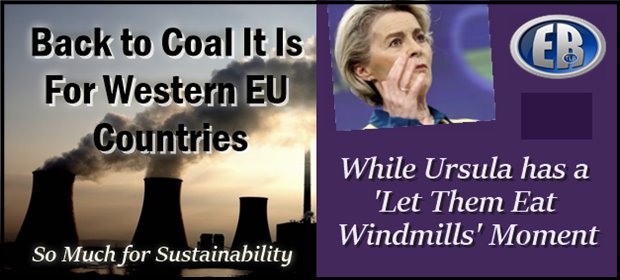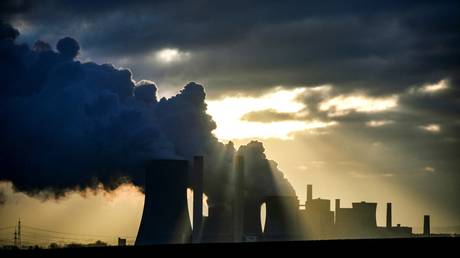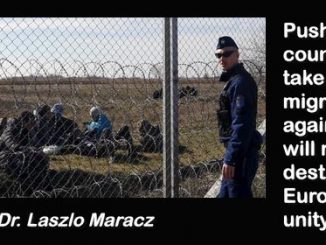
ER Editor: Below is a selection of RT reports from yesterday indicating that, despite the hallucinatory instructions from EU Commission head and globalist, Ursula von der Leyen, EU member state leaders are having none of it. It’s back to coal-powered plants while gas for generating electricity is in short supply.
See this excellent piece by Mike Whitney on the topic of Russia’s actions in rationing gas to Europe:
Meet the New Boss: Putin Reroutes Critical Hydrocarbons Eastward Leaving Europe High-and-Dry

In the introduction to this piece, we added a wise word from Benjamin Fulford (Western financial hallucination crashes into reality) concerning the cabal’s nothing-backed fiat currency, and it certainly is about the money system behind the scenes:
The first to fall will be Europe. The Russians and others have cut off their gas because nobody wants to accept their nothing backed fiat money as payment for real goods.
The move to a gold-backed, commodities-backed money supply is, of course, not getting much of a public mention. Tom Luongo in his latest piece makes reference to this critical fact about worthless money. See
Luongo: Russia’s New Rules

We remind readers of the common wisdom on Russian energy: for Europe, it’s always been thoroughly essential and very cheap. Those times have gone.
********
Ursula von der Leyen warned against returning to the use of dirty fossil fuels amid tensions with Russia
The EU must not revert to using coal and neglect its climate change goals in order to replace Russian gas, European Commission President Ursula von der Leyen has said.
“We have to make sure that we use this crisis to move forward and not to have a backsliding on the dirty fossil fuels,” von der Leyen told the Financial Times on Monday.
“It’s a fine line and it’s not determined whether we are going to take the right turn.”
Von der Leyen said EU nations need to continue “massive investment in renewables.”
She added that Brussels has “emergency steps in place” to respond to the threat of decreasing supplies from Russia, such as energy conservation and prioritizing which industries receive gas.
In March, the commission announced the goal of phasing out Russian gas by 2030. The decision was made as part of sanctions over Moscow’s military campaign in Ukraine, which was launched in late February.
EU members such as Germany, however, have repeatedly warned that an immediate ban on Russian energy will badly hurt their economies.
German Economy Minister Robert Habeck said on Sunday that coal-fired power plants have to be used instead of gas to generate electricity, and more gas must be pumped into storage facilities. “Otherwise, it will be really tight in winter,” he said. “That’s bitter, but it’s simply necessary in this situation to lower gas usage.”
Habeck’s comments appear to be a stark departure from the climate change plan unveiled by the government in January, in which Germany’s share of renewable energy is to increase to 80% by 2030.
His statement came after Russian gas company Gazprom announced last week that it was reducing the flow through the Nord Stream 1 pipeline for technical reasons. The Netherlands said on Monday that it would also lift restrictions on coal-burning. A similar plan was rolled out by Austria.
Source
***
The Netherlands has joined Germany and Austria in reverting to coal power amid the energy crisis
Dutch Climate and Energy Minister Rob Jetten has announced that the Netherlands is lifting all restrictions on coal-fired power stations to reduce natural gas consumption, while making an “urgent appeal” to businesses to save as much energy as possible ahead of the winter season.
The Hague has activated the ‘early warning’ phase of its energy crisis plan, in the face of a potential shortage of natural gas this winter, Jetten said on Monday, adding that the decision had been prepared in coordination “with our European colleagues over the past few days.”
“The cabinet has decided to immediately withdraw the restriction on production for coal-fired power stations,” he said, referring to the rule under which all coal-fired power plants in the Netherlands may only be operated at a maximum of 35% of their installed capacity.
“I want to emphasize that at the moment there’s no acute gas shortage,” Jetten noted, but nonetheless claimed that “more countries are now being squeezed” by Russia.
In a similar move on Sunday, German Economy Minister Robert Habeck said that Berlin will have to boost the use of coal for electricity production to make up for the shortage of natural gas from Russia.
Meanwhile, the Austrian government agreed with energy company Verbund to convert a reserve gas-fired power plant in the southern Styria region to produce electricity using coal in case the energy emergency deepens.
These moves follow a decision by Russia’s Gazprom to cut natural gas deliveries to Germany via the Nord Stream pipeline by 60% after German maintenance provider Siemens failed to return pumping units after repairs due to sanctions. European officials claimed this decision was purely political and linked to tensions between Russia and the West over Moscow’s military operation in Ukraine.
Source
********

The country is returning to coal for electricity production, Bloomberg reports
Austria is bringing its biggest coal-fired power plant back to life for electricity production amid a reduction in Russian natural gas supplies, Bloomberg reported on Monday
The nation’s biggest utility and most valuable company, Verbund AG, was reportedly ordered late Sunday to prepare its Mellach coal-fired station for operation. The plant, which is located 200km (124 miles) south of Vienna, was shuttered two years ago after the country decided to eliminate coal entirely from its electricity grid. It was turned into a center for researchers looking for ways to safely feed hydrogen fuel to the power grid.
“The government and Verbund have agreed to convert the Mellach district heating plant, which is currently shut down, so that electricity can be produced again from coal in an emergency,” Chancellor Karl Nehammer’s coalition said in a statement seen by the outlet.
Other European nations, including France, Germany, and the United Kingdom, have also announced plans to extend the use of coal-fired power to make up for the shortage of natural gas from Russia.
According to the report, Austria’s gas storage depots currently contain just 39% of the country’s annual needs.
Source
************

••••
The Liberty Beacon Project is now expanding at a near exponential rate, and for this we are grateful and excited! But we must also be practical. For 7 years we have not asked for any donations, and have built this project with our own funds as we grew. We are now experiencing ever increasing growing pains due to the large number of websites and projects we represent. So we have just installed donation buttons on our websites and ask that you consider this when you visit them. Nothing is too small. We thank you for all your support and your considerations … (TLB)
••••
Comment Policy: As a privately owned web site, we reserve the right to remove comments that contain spam, advertising, vulgarity, threats of violence, racism, or personal/abusive attacks on other users. This also applies to trolling, the use of more than one alias, or just intentional mischief. Enforcement of this policy is at the discretion of this websites administrators. Repeat offenders may be blocked or permanently banned without prior warning.
••••
Disclaimer: TLB websites contain copyrighted material the use of which has not always been specifically authorized by the copyright owner. We are making such material available to our readers under the provisions of “fair use” in an effort to advance a better understanding of political, health, economic and social issues. The material on this site is distributed without profit to those who have expressed a prior interest in receiving it for research and educational purposes. If you wish to use copyrighted material for purposes other than “fair use” you must request permission from the copyright owner.
••••
Disclaimer: The information and opinions shared are for informational purposes only including, but not limited to, text, graphics, images and other material are not intended as medical advice or instruction. Nothing mentioned is intended to be a substitute for professional medical advice, diagnosis or treatment.




